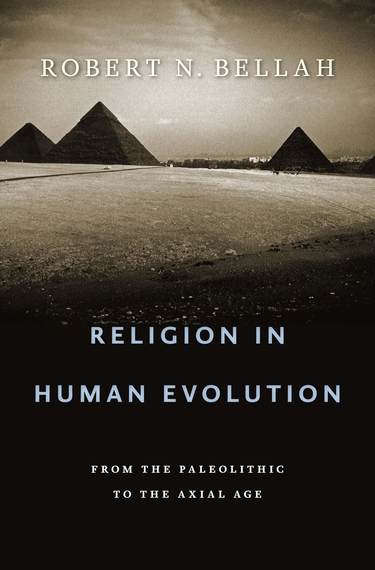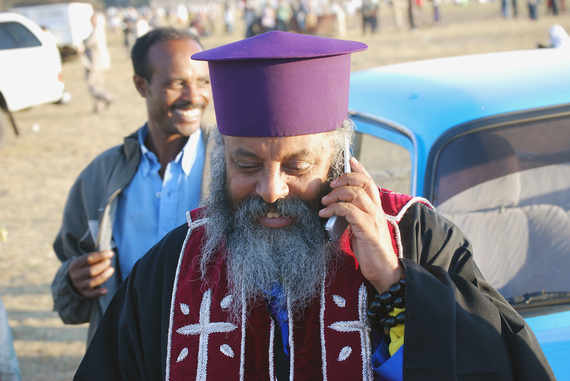What is it that people are doing when they worship? In college I wanted to find out. In my first semester I took the prerequisite for Robert Bellah's Sociology of Religion class. Before long I began to worry about my future job security and as a result took too many classes in finance and economics. I still regret this missed opportunity to study with him.
Robert Bellah wrote about American civil religion, what it means when a president finishes a speech saying "God bless America," or attends an event at the National Cathedral.
Although he did not write explicitly for a Christian audience, Bellah was a deeply faithful Episcopalian. At the very end of his life he published his magnum opus Religion in Human Evolution. He writes about religion in ancient times and what it means for us today.
Bellah appeals to the anthropologist Clifford Geertz's theory about the relation between religion and what he calls the everyday world. The everyday is what we all share in common. It seems natural. It is the dog-eat-dog practical world of getting a job. It is the world of ordinary objects and common sense in which we assume that things are as they appear. Operating in this world we tacitly agree not to question its reality. We just go about our daily work.
This is not the world of religious mystery, nor is it the 13.8 billion year old scientific universe with its counter-intuitive clouds of molecules. Still some might be tempted to believe that the everyday world of anxiety, work and survival is everything.
As symbol-generating, language-based beings this could not be further from the truth. The world of daily life is not an objective reality. Although it appears natural, human beings over time made it up just as we subtly continue to change it. While it is the reality we most frequently share with everyone else, it is not all there is.
Recently biologists borrowed a metaphor from computers and began distinguishing between online and offline modes for animals. Online activities share much in common with the world of daily life that I just described. Online, animals participate in a Darwinian struggle. Bellah calls it, "the world of foraging, fighting, fleeing, procreating," and all that we do to survive. This online world makes sense to us; scientists feel more comfortable making statements about it.
Offline is the time when creatures do pretty much everything else. It is when we rest, dream, paint, make music, clean up, decorate, tell stories, create and play. We simply do not know scientifically as much about why we engage in these activities.
Although we cannot test the brains of creatures that do not have them, it seems like every organism sleeps. And yet it was not until the 1950s that we even knew about REM (rapid eye movement) sleep.
We do not know much about play either. Scientists speculate that the purpose of play might be exercise, social learning, or practice in strategizing. But this kind of explanation seems like a way of dragging the offline world back into the online one.
Ritual also belongs to the offline world. Clifford Geertz writes, "In ritual, the world as lived and the world as imagined... turns out to be the same world." Religion gives us another world to live in so that we are different when we return to daily life. More importantly ritual leads us to act on daily life in a different way.
The philosopher George Santayana writes that "out of the context of concrete acts of religious observance... religious conviction emerges." Most of my Silicon Valley neighbors think that we go to church because we believe. In our church we say just the opposite lex orandi, lex credendi, the rule of prayer shapes the rule of belief. Participating in church comes first and this leads to believing. The ritual changes what the world means.
Bellah agrees with Geertz that no matter how real the world of religious symbols may be for a person, no one, not even the holiest saint can live in it all the time. Eventually the church service ends and we have to go back to planting fields, caring for children and of course, tax forms. Eventually we always return to daily life, even though the religious and scientific realms make us more likely to question aspects of it. Religion creates new worlds and those worlds alter the everyday world.
Near the end, Mark Twain said, "I am an old man and have known many troubles, but most of them never happened." All of us remember times when we lived unnecessarily in fear. We have been afraid of failure, change, of being dependent. Fear was one of the reasons I didn't take Bob Bellah's class.
I mentioned that everyday life should not be confused with reality or objectivity. Although we share everyday life with many people, it has a story like any other world. This story is mostly based on fear, limitation and scarcity. Jesus reminds us that a person living fully in God has few fears. To be in Christ means to experience a kind of freedom from the tyranny of our ego. It means more fully becoming the children of God that we were created to be.
For many years Robert Bellah has been a blessing to me. He died last summer. I deeply regret that I never called him up and asked him out to coffee. I'm not sure if he is right in distinguishing a shared everyday life from the religious world that I love so much. He does help me to appreciate what we do offline in our sleep, play and especially these religious rituals.
What are we doing in worship? We are sorting through our mixed motives and mysterious desires. We are learning God's story again. We are returning home so that we can go with power into the everyday world.

